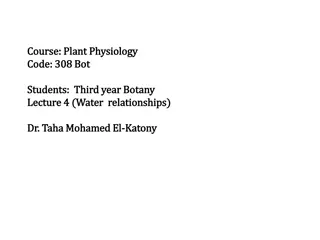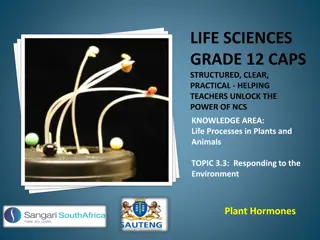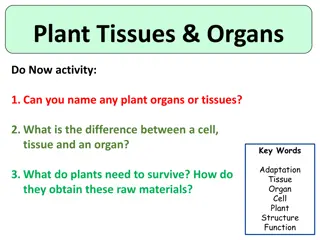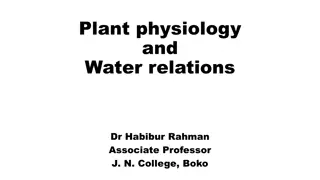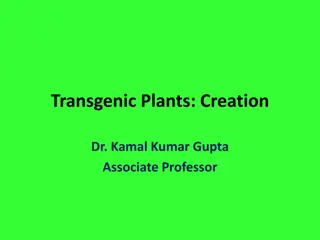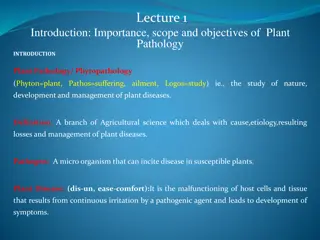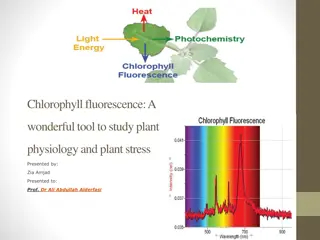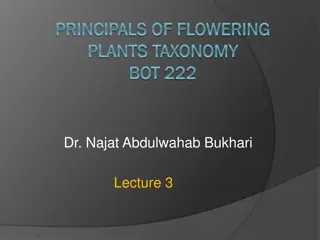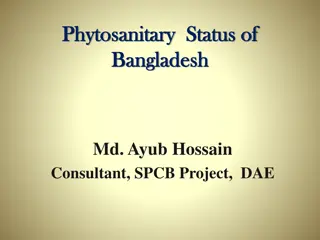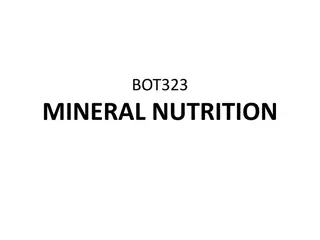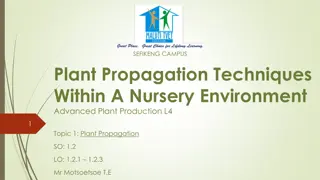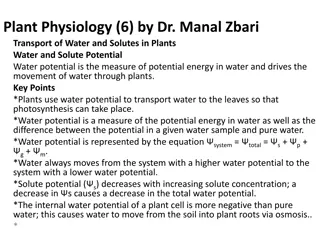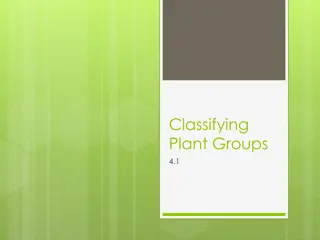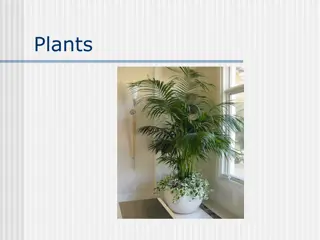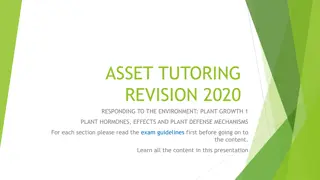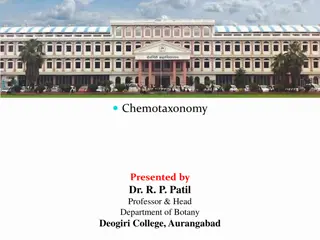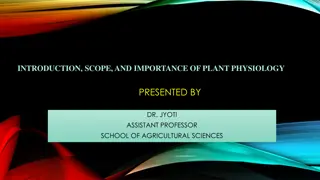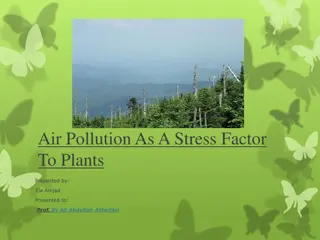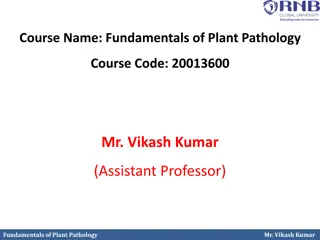Introduction to Plant Physiology: Exploring the Functioning of Plants
Plant physiology is a crucial subdiscipline of botany that delves into the processes and functions operating within plants. This field closely examines areas like plant morphology, ecology, cell biology, and genetics, shedding light on vital processes such as photosynthesis, respiration, and more. Through advancements in technology and research methods, plant physiologists continue to unravel the mysteries of plant behavior and development, contributing to a deeper understanding of plant anatomy and function. The dynamic nature of plant physiology ensures continual growth and evolution in scientific knowledge, making it an exciting and essential field of study.
Download Presentation

Please find below an Image/Link to download the presentation.
The content on the website is provided AS IS for your information and personal use only. It may not be sold, licensed, or shared on other websites without obtaining consent from the author. Download presentation by click this link. If you encounter any issues during the download, it is possible that the publisher has removed the file from their server.
E N D
Presentation Transcript
INTRODUCTION TO PLANT PHYSIOLOGY
PLANT PHYSIOLOGY * Plant physiology is a subdiscipline of botany concerned with the functioning, or physiology, of plants. * Plant physiology closely related fields include Plant Morphology, Plant Ecology, Phytochemistry , Cell Biology, Genetics, Biophysics and Molecular Biology. * Plant physiology, operating in the living plants and plant parts are studied. natural phenomena
*It is a discipline of botany where the structure of the cell, tissues and organs is associated with processes and functions. *The different responses of organisms to environmental alternations and the resultant growth and development which are the outcome of such responses are also studied in plant physiology. * Some of the most important processes operating in plant are stomatal mechanism, Water and mineral absorption, Photosynthesis, Respiration, etc.
* A plant physiology tends to understand, describe and explain such processes. * Indeed the development of these sciences has contributed to the evolution and discovery of several instruments and techniques elaboration of plant anatomy. *A sound knowledge of plant anatomy is essential for interpreting the functions and processes operating in a plant. *Several of the plant processes could only be revealed by the use of sophisticated instruments and techniques provided by the chemical and physical science. which helped in the
* The availability antimetabolites, of the techniques chromatography, of radioisotopes, scanning, transmission electron microscopy, and mass spectrometry has helped in the elaboration of several processes. *In fact, elaboration of cell structure has considerably aided in understanding plant structure in relation to function. *The discovery in peroxisomes and other organelles in recent years is the outcome of combined technology of biochemists, biophysicists and anatomists. plants of lysosomes,
* Plant physiologist is always open to self or other corrections. It is an enlivened science which will change with time and be enrichened with more and increased experiences over the years. * Take for instance the process of photosynthesis and even the discovery of photorespiration or the processes operating in C4 plants. *Plants posses different patterns and habitats as compared to animals it is important to study plant physiology. * Plants are also static and posses the capacity to manufacture their own food.
* They posses the capacity to grow and add cells throughout their life span. * Clearly in plants organs develop, grow and die. The regulating systems controlling growth differ from those of animals. * The control of plant development is the outcome of action environments and nutritional factors. * Most of these factors interact with each other and cause effective growth of the plant. As compared to animals plants posses special features which point towards their unique physiological characteristics. of several hormones,


